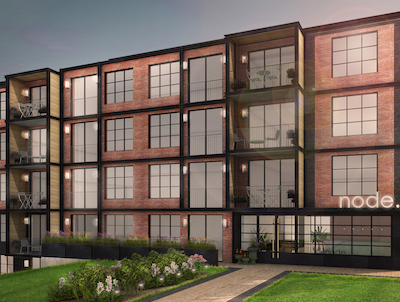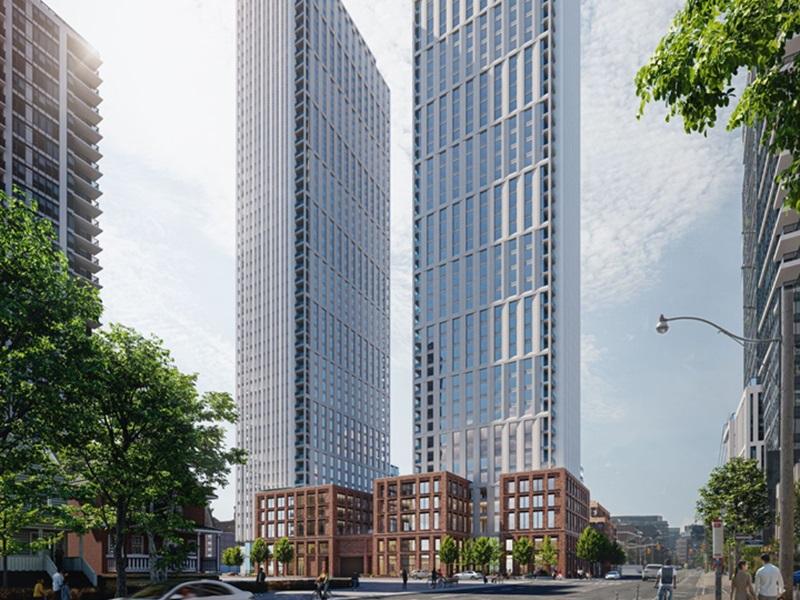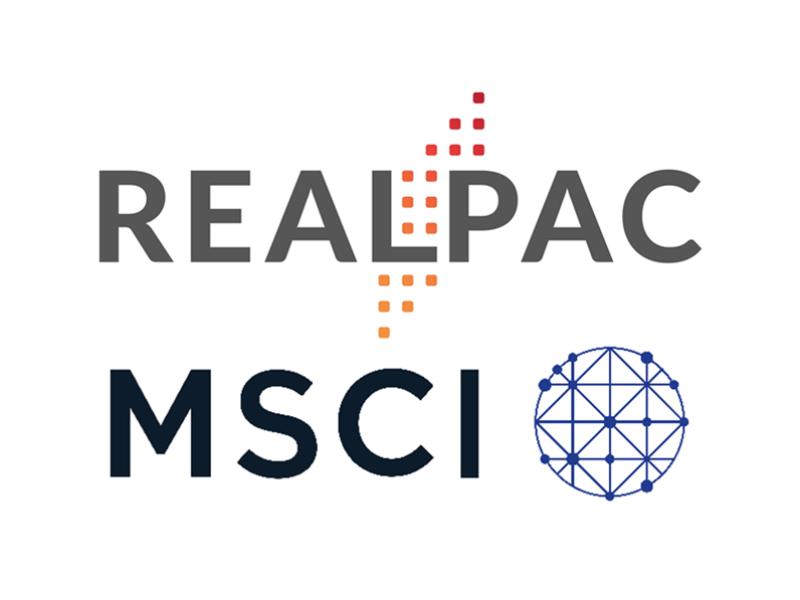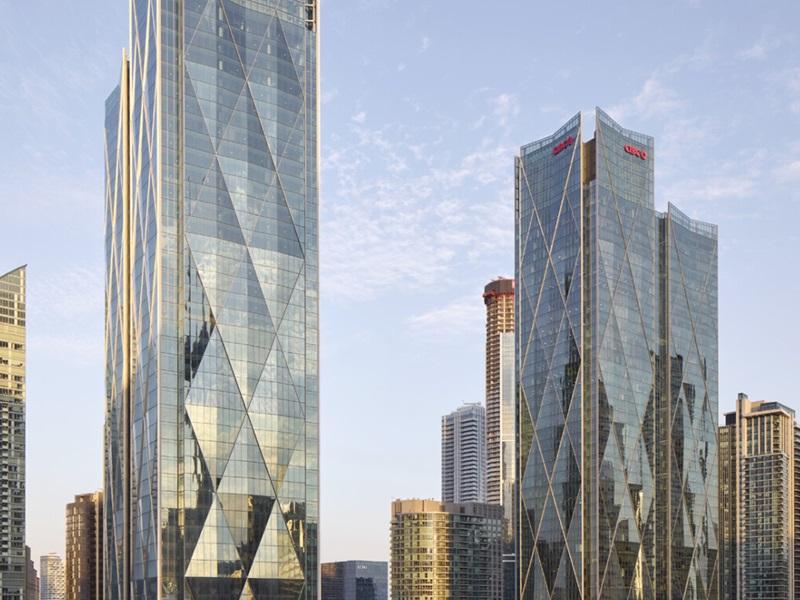
Co-living company Node will build its first Canadian apartment project in Kitchener-Waterloo this fall. (Courtesy Node)
Global co-living company Node will break ground on its first Canadian urban housing development this fall featuring 38 “Instagram-ready” model home apartments in Kitchener-Waterloo.
“What we’re tackling here is actually being an investor, developer and operator — so vertically integrated, global — but really trying to be part of the apartment stock solution,” said Node founder and CEO Anil Khera.
Located roughly 115 kilometres west of downtown Toronto, Node K-W will bring the company’s “internationally proven rental model home” to Canadian soil. Development costs for Node K-W are in the $10- to $20-million range, Khera confirmed.
Node specializes in creating ready-to-live, globally connected communities for young professionals.
Offering 50 beds, the design-led apartment near Charles and Queen Streets is expected to open in early 2021.
“We’re psyched about that,” said Khera.
Node founder a Toronto native
The Toronto native is returning to familiar ground with this project. Khera attended the University of Waterloo for his undergraduate degree.
The region’s innovation cluster is a huge draw for Node’s incubator concept “before we grow across the country.” Location is everything, Khera says, and Kitchener-Waterloo is one of Ontario’s key innovation hubs. He touts Waterloo’s Velocity entrepreneurship program and the presence of Google among Node’s reasons to set up shop in the country’s start-up capital.
In April, Prime Minister Justin Trudeau visited Kitchener-Waterloo to announce the federal government’s $52-million investment in an innovation corridor spanning much of Ontario. It will link Communitech in Kitchener, the MaRS Discovery District in Toronto and Invest Ottawa, helping to create 18,000 skilled jobs the government says.
All three cities are on Khera’s radar for Node, which was formed in 2016 and has offices in Toronto and the U.K.
“We really consider ourselves global,” said Khera, adding “we kind of work both sides of the pond.”

Node founder and CEO Anil Khera, a Toronto native, spent his undergraduate years at the University of Waterloo. He’s heading back to Kitchener-Waterloo in August to unveil Node’s first co-living apartment building in Canada. (Courtesy Node, Sasko Lazarov/Photocall Irelands)
Other Node co-living sites
Brooklyn, N.Y., is home to Node’s first co-living location, which opened in 2017. Projects have followed in Dublin, Los Angeles, London, and Manchester. Seattle and Kitchener-Waterloo are next.
Khera has worked in real estate for 15 years in the U.S. and Europe. He spent a decade at Blackstone (BX-N), the world’s largest private equity real estate firm with more than $100 billion of assets under management. He rose to become managing director at Blackstone in London, taking part in at least $30 billion worth of acquisitions, financings, and dispositions.
Khera created Blackstone’s European real estate capital markets group, and played a role in creating its Indian real estate team. He also helped set up and successfully sell Nido Student Living, a design-led, U.K. student housing development and management platform.
Now he’s in Node mode, and he says the concept sells itself. Node offers fully furnished apartments which are move-in-ready and hassle-free for tenants. Each unit has its own bathroom, kitchen and living room.
Communal areas at Node K-W will include co-working spaces, lounges, and outdoor patios with a BBQ and fire pit.
An app centralizes building access, courier services such as Amazon deliveries, rental payments and maintenance requests.
“There’s a big tech angle there,” said Khera.
Help fill “housing need”
All of these factors are legitimate concerns for many millennials and Gen Z youths struggling to find affordable places to live.
“We think there’s a housing need,” Khera said, adding Node is an “urban housing solution” which solves three problems.
The first is cost. Node is bringing down the price per tenant by creating efficient spaces, said Khera. Convenience is next, in that “you don’t have to wait for the Rogers (Internet) guy to show up,” since all utilities are included. Finally, community plays an integral role in the Node blueprint, and residents are strongly encouraged to interact.
Then there are the economics behind the model.
Node’s units are for co-living and “we don’t have 10 people sharing a kitchen or anything like that, but we’re still more efficient than a normal multi-family building,” Khera said.
They’re about 70 per cent of the size of a normal apartment.
By being lean, “we can break down the cost and we can give some of that space that’s given privately back in the public realm,” said Khera.

Move-in-ready Node apartments are geared to young professionals. They feature co-working spaces, high-spec kitchens, smart home technology, eco-thermostats, all-inclusive utilities, furnishings, and a resident’s app that centralizes building access, courier services, rental payments and maintenance. (Courtesy Node)
Cheaper for tenants, higher returns
From a tenant perspective, savings run anywhere from 10 per cent to 30 per cent monthly versus a standard rental.
“By running our buildings more efficiently, we can do things like bundle utilities, we have a tech platform that may be more efficient than a traditional leasing system or managers,” said Khera. “We typically end up getting higher rents per square foot, and those can be anywhere from 20 to 30-plus per cent.
“A lot of that 20 to 30 per cent falls straight to the bottom line.”
There are slightly higher costs “for one or two things but they tend to be very minor and so most of that value means that an asset could be valued 20 to 30 per cent higher for this,” said Khera. “So, that could be very significant in projects where actually, the yields are quite low.”
Apartment buildings have had difficulty competing with condo buildings for a long time, he noted.
“The co-living model that we currently have can drive a lot of higher returns and at the same time also bring savings to the customer,” said Khera. “That’s where we get excited because it feels more viable that actually A) we can help save people money, and B) build better communities, and then C) build better investor returns.
“So it’s really trying to have a holistic approach that works both for the consumer and the investor.”
Khera said he’s visited all Node locations and “I won’t pick favourites.” Having said that, “we had a very big impact when we opened in Dublin,” he said.
The company is continuing to expand, quickly. With several hundred units, “we’re hoping to grow relatively soon into the thousands,” said Khera.
“We could have a few thousand beds in each city across multiple buildings over time. . . . Our mission is to be in the 10s of thousands of units over time.”







